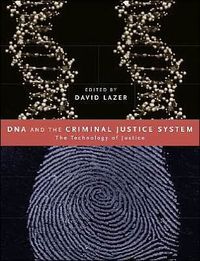

Purchase
DNA and the Criminal Justice System
David Lazer
The Technology of Justice
The MIT Press
November 2004
On Sale: November 1, 2004
432 pages
ISBN: 026262186X
EAN: 9780262621861
Paperback
Add to Wish List
Non-Fiction
Is DNA technology the ultimate diviner of guilt or the
ultimate threat to civil liberties? Over the past decade,
DNA has been used to exonerate hundreds and to convict
thousands. Its expanded use over the coming decade promises
to recalibrate significantly the balance between collective
security and individual freedom. For example, it is possible
that law enforcement DNA databases will expand to include
millions of individuals not convicted of any crime.
Moreover, depending on what rules govern access, such
databases could also be used for purposes that range from
determining paternity to assessing predispositions to
certain diseases or behaviors. Thus the use of DNA
technology will involve tough trade-offs between individual
and societal interests. This book, written by a distinguished group of authors
including U.S. Supreme Court Justice Stephen Breyer,
explores the ethical, procedural, and economic challenges
posed by the use of DNA evidence as well as future
directions for the technology. After laying the conceptual
historical, legal, and scientific groundwork for the debate,
the book considers bioethical issues raised by the
collection of DNA, including the question of control over
DNA databases. The authors then turn to the possible genetic
bases of human behavior and the implications of this
still-unresolved issue for the criminal justice system.
Finally, the book examines the current debate over the many
roles that DNA can and should play in criminal justice.
Comments
No comments posted.
Registered users may leave comments.
Log in or register now!
| 


 © 2003-2025 off-the-edge.net
all rights reserved Privacy Policy
© 2003-2025 off-the-edge.net
all rights reserved Privacy Policy